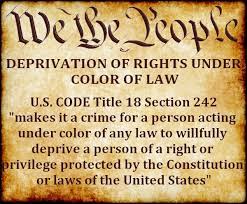

The first step in representing yourself in court is to read the Pro Se Guide that courts provide to self-represented litigants as a courtesy. This is step that most people skip but it is essential to your success because it tells the judge that you respect the court. When the judge knows you respect the court, then the judge will respect you and want to read what you have to say in your documents.
Of course there will always be some biased judge who are bad apples and do not respect anyone no matter what, it is important that you read the rules so you can know if even the court officers are acting beyond the bounds of courtroom etiquette.
Click Here to access the Pro Se Guide. Pro Se Guide
The beginning of the Pro Se Guide includes some important vocabulary that you should be familiar with when representing yourself in court. Knowing these words will ensure court officials dont use words that you dont understand. Be sure not to ask what the word means because it will only demonstrate your failure to read the Pro Se Guide. Learning the vocabular in the Pro Se Guider will also ensure you express yourself coherently in court and don’t use terminology that the court isnt’f familiar with. Reading goes a long way in improving the communication between you and the court.
After you have read the Pro Se Guide, your first documented communication with the court should be to notice them that you will be representing yourself and you will not be using attorney services. You can draft your own notice letter or you can use a Notice_Self_Representation that courts many times provide to Pro Se litigants as a courtesy.


